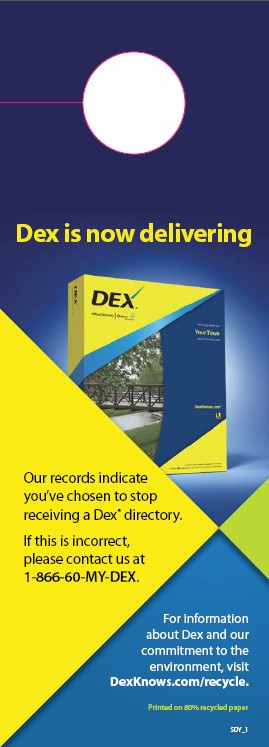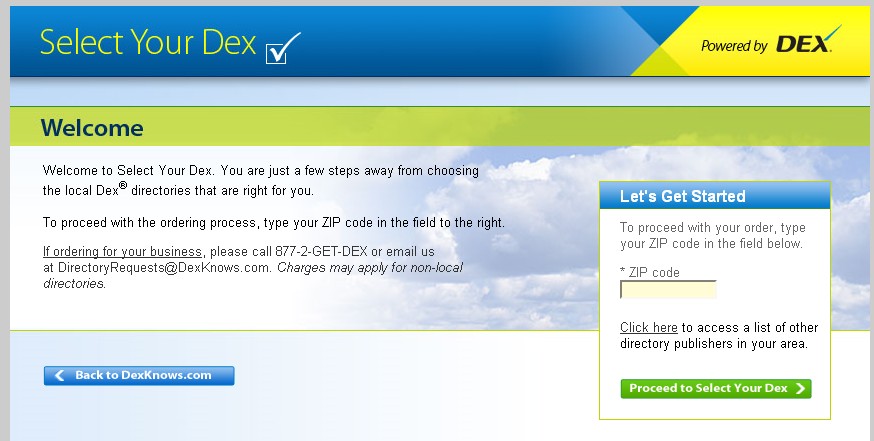The movement to compel Yellow Pages publishers to make it easy for consumers to opt out of receiving telephone books and punish unwelcome distribution gained some momentum last week with legislation introduced in Minnesota and the city of Albany, New York. In the meantime, directory publishers continue to refine their own programs in the hope of demonstrating genuine self-regulation, thus avoiding having regulations imposed on them.
The Minnesota bill calls for telephone directory publishers to prominently publish a statement on their directories directing consumers who do not wish to receive a phone book, and offer a toll-free number and a Web site that can be used to opt out. The penalty for a violation, presumably the delivery of a single book to someone who has opted out, is $500. That could add up quickly, though a delivery in error can be offered as a defense. The bill also calls for publishers to maintain a database of names and addresses of all those who opt out of delivery.
The proposed ordinance in Albany is essentially a repeat of an earlier proposal. Recent complaints about directory deliveries to abandoned buildings, which resulted in an unsightly mess, led a city council member to dust off the ordinance. It now adds telephone directories to the media covered under a law banning the unsolicited distribution of handbills. The ordinance prohibits distribution in public places, to abandoned or vacated homes, and for five years to any home or business that has opted out through a required toll-free number, posted on the directory cover.
Both bills would impose some cost and hassle on the directory industry at a time when they are cutting costs. However, we think at least some of these measures are inevitable. It is unclear what the odds are that these bills will pass, but it does seem to be getting more difficult for the industry to fight these off.
The Yellow Pages Association‘s public policy director, Amy Healy, told us the industry plans to continue fighting to defeat each bill rather than just trying to make them more palatable.
“We are still trying to stop all of these,” she said. “We are committed to a self-regulation approach.”
Many publishers offer serious measures to facilitate opt-out, though critics complain the measures are not widely promoted.
One example of a serious opt-out platform is R.H. Donnelley’s “Select Your Dex,” which is an online tool that is easy to use and allows consumers to enter their ZIP code, view the directories that are currently delivered to their home and modify the mix of books to request more copies of one, fewer of another or none at all.
RHD has maintained a database of individual customer delivery records for the past 15 years, and the infrastructure that had enabled it to maintain special requests, like receiving extra copies of a book, has made it easier to set up a robust online opt-out tool. When consumers do opt out, RHD leaves a door hanger at the house confirming that they did not want a book, and giving them a number to call if they change their mind. Maggie Stonecipher, AVP for print and delivery services at RHD, said some consumers do call for delivery after having opted out. You can see an image of the door hanger below.
Stonecipher also told us that showing the online tool to legislators and regulators has made a difference in dampening the fervor to impose draconian opt-out measures on the industry.
Healy says the ultimate objective is for the industry to create a single online opt-out site with wide industry participation that allows consumers to opt out or get opt-out information for any location.
“The industry needs to move to a centralized site where information on how to opt out is listed, something that legislators can point to when their constituents call.”

This Post Has 4 Comments
Leave a Reply
You must be logged in to post a comment.


It would be interesting to see some statistics on how many people actually opt-out when given the option. Such data would be significant in battling one way or the other over this issue. If a company distributes 100,000 directories and only 10 people opt-out then the cost of the system would surely outweigh the benefits. A low number of opt-outers could also help prove continuing importance of directories. Is there any such data available?
Andy, My understanding is the experience in Europe has been that opt-out rates have ranged from mid to high single digits.
Well opting-out may also give the publishers a way to save money. This sounds crazy but if they have people opt-out then they print less and deliver less thus saving money. Since publishers almost never decreas rates from year to year they most of the time increase them, they would only be saving money not losing any. Although with fewer being distributed many would argue that rates need to be cut but who are we kidding thats not going to happen. I agree with Andy this would make yellow pages sales much easier because instead of a talking about a distribution that goes everywhere in the distribution area you can say X number of people choose to receive this directory. Which is true they choose to by not opting-out, thus justifing the continual use of print yellow pages. I am unsure on a self regulating theory because the financial markets self regulated for the most part over the past few years and look what happened. Corners will always be cut if it is allowed but i am in favor of not taking any rights away ever. What ever happened to America home of the FREE I havent heard that in forever because we are not free anymore due to so much goverment regulation on everything. In some areas they even regulate the specific brand of shingles to put on every roof which is just ridiculous to me.
We’re working on opt-in legislation in Oregon right now!
http://www.scn.org/neighbors/beacon/pdx/hb3477.pdf it the draft legislation. would like to see this go nationwide.
also, we have a new FB group, just search on phonebooks…